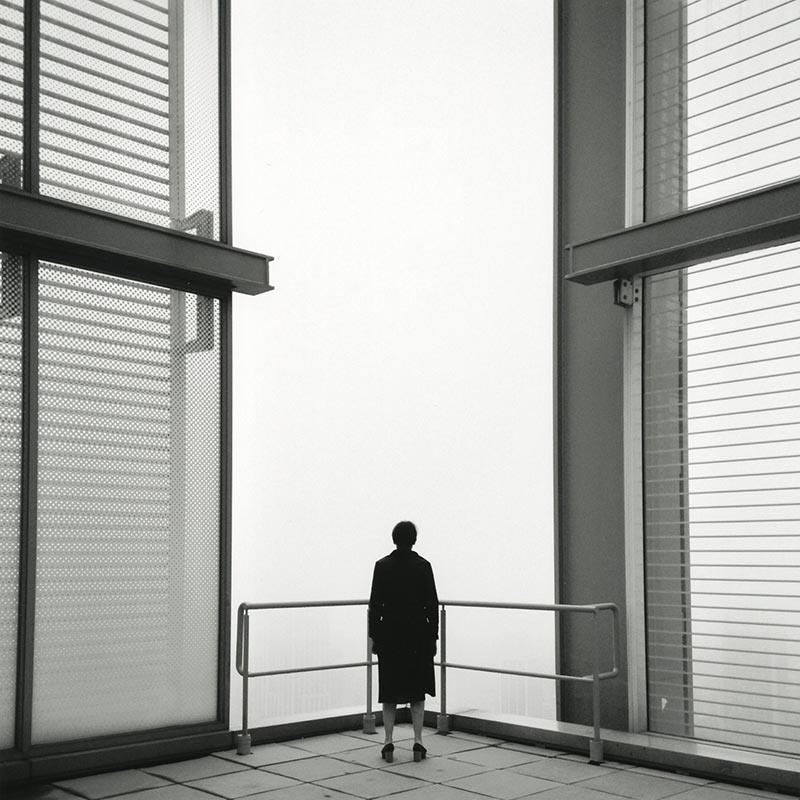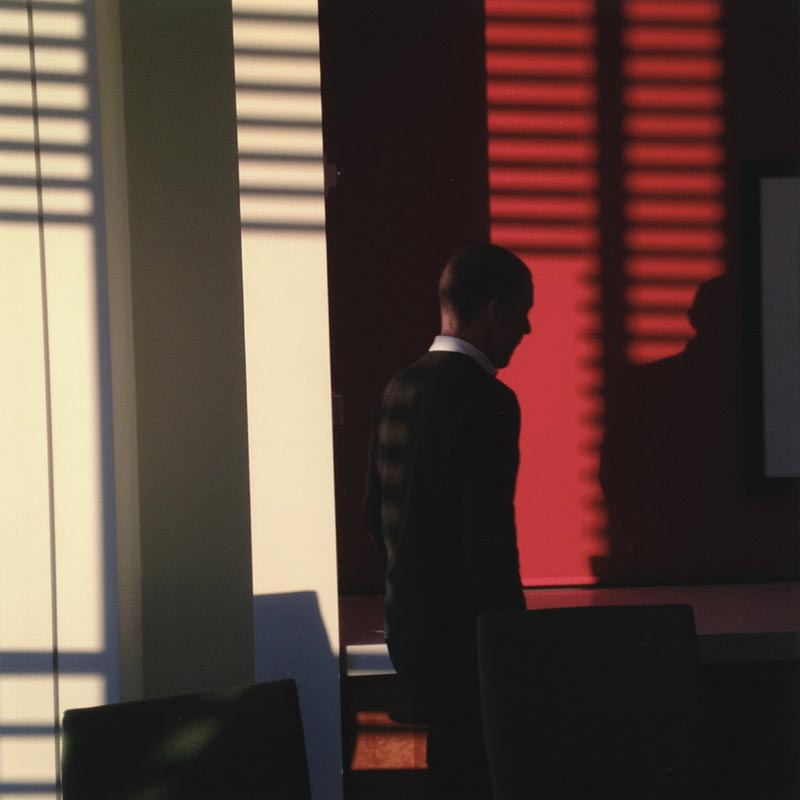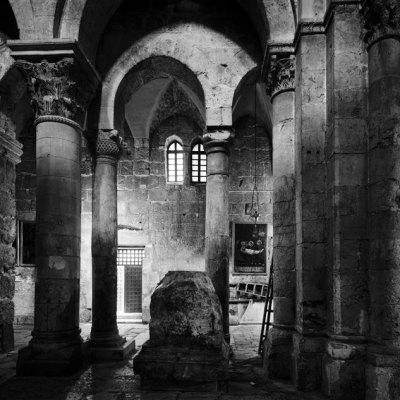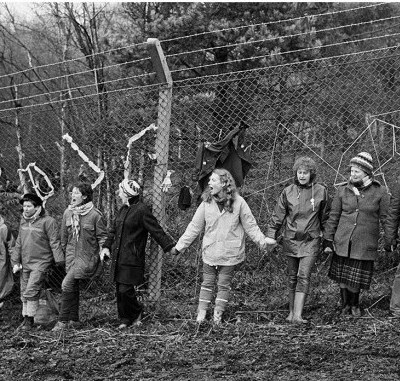There are some very interesting photography exhibitions in New York’s private galleries this month. Here are five you should get to before they close – and don’t forget ‘Dream States’, a wide-ranging display at the Metropolitan Museum of Art (reviewed here).
‘Mark Cohen: Closer’
Danziger Gallery (until 11 June)
A native of Wilkes-Barre, a rural town in Pennsylvania, Mark Cohen has remained outside traditional American photography circles. While photographers like William Eggleston and Lee Friedlander set out across America to discover their subjects, Cohen spent over 40 years in his backwater town, photographing a community that he knew well. The result is a body of disquietingly intimate street photography.
A typical Cohen photograph is usually a close-up portrait that frames only part of a person’s body: his or her legs, crotch, face, hair, or torso. Since these photographs are always taken outdoors, they also betray signs of the place – a park, a road – in which the person was standing at the time. The juxtaposition between the body and background is the central lure of Cohen’s work. On one hand, his photographs carry an obvious erotic energy: on the other, they convey a sense of desolation and claustrophobia. Indeed one can’t help but think that the title, ‘Closer’, is a pun: Cohen is getting closer to his subjects, but his small world is also closing in on him.
‘Chloe Sells: Under The Sun’
Julie Saul Gallery (until 11 June)
Chloe Sells is a Colorado-born, Botswana-based artist whose work toes the line between painting and photography. Shooting with a 4×5-inch camera, Sells takes as her subjects the beaches, forests, and mountains of Botswana’s landscape – though you won’t necessarily know that from the final artworks themselves. Sells uses her photographic negatives only as starting points. She extensively manipulates them in the darkroom, adding swatches of colour, inking on abstract designs and cutting down her large prints into irregular shapes. Which is to say she operates within an older definition of printmaking.
In the hands of another artist, this technique could amount to little more than empty Technicolor artiness. But Sells carefully deploys her tones to express a particular experience of time and place. Her photographs avoid the sense of rose-tinted nostalgia so common to Instagram, and assail us like shards of memory from a distant and complex childhood.
Reciprocal Patterns (2016), Chloe Sells. © Chloe Sells, Courtesy Julie Saul Gallery, New York
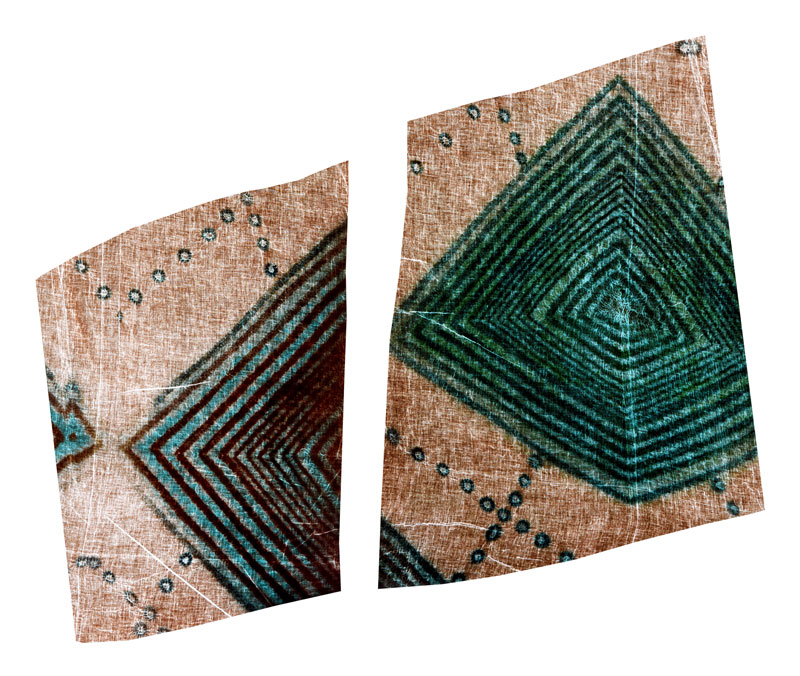
‘Fazal Sheikh: Independence/Nakba’
Pace/MacGill (until 30 June)
In 2010, Fazal Sheikh was invited to take photographs in the West Bank and Israel as part of an ambitious group project about the contested region, curated by Frédéric Brenner. He spent five years working there to produce The Erasure Trilogy, a serious, multi-volume work of witness that comprises aerial shots of the local landscape, images of the ruins of bowdlerized Palestinian villages, and 64 pairs of portraits that show one Palestinian and one Israeli born in each year since the 1948 Nakba (the ‘catastrophe’ in which more than 700,000 Palestinian Arabs fled or were expelled from their homes).
As part of an international presentation of his work, Sheikh’s portraits will be on display at the gallery until 30 June. I saw him present these on a big screen at the Brooklyn Museum last month, and found them enormously moving – a powerful expression of what Sheikh’s interlocutor that day, Teju Cole, described as ‘a historical wrong’.
Independence|Nakba (2013), Fazal Sheikh. © Fazal Sheikh
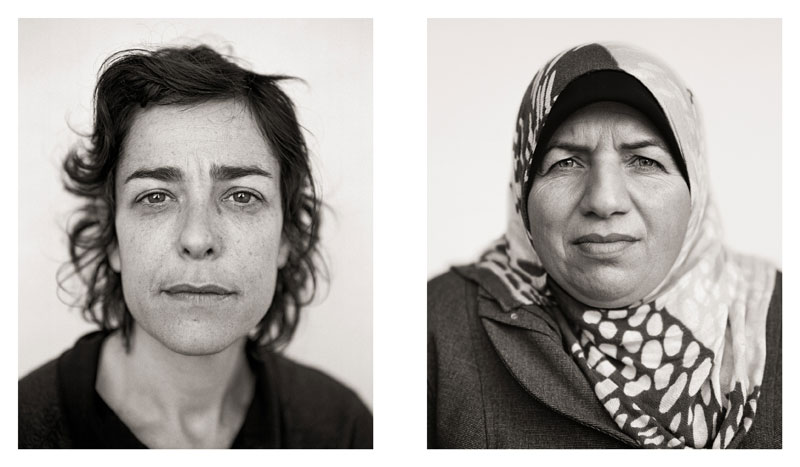
‘Attitude: Portraits by Mary Ellen Mark’
Howard Greenberg Gallery (until 18 June)
One of America’s great post-war documentary photographers, Mary Ellen Mark, passed away last year leaving behind an extensive oeuvre. ‘Attitude’, one of the first major exhibitions of her work since her death, is something of a ‘greatest hits’ show that presents photographs from her famous series on twins, her political documentary work in India, her American street photography, and her lesser-known though excellent celebrity portraits.
Ellen Mark was an empathetic and egalitarian photographer, as comfortable around circus performers and ageing tramps as she is among film stars. Unlike Weegee, who stuffed his work with manic energy, or Diane Arbus, who exuded a sense of chic disengagement, her photographs of the marginalised have a sense of intimacy, acknowledging both their socio-economic suffering, and the tenderness of their personal lives. We will never know how she grew so close to Lata, an Indian prostitute she brightly portrays in a squalid bed, laughing with her customer.
Amanda and Her Cousin Amy Valdese, North Carolina (1990) © Mary Ellen Mark. Cout
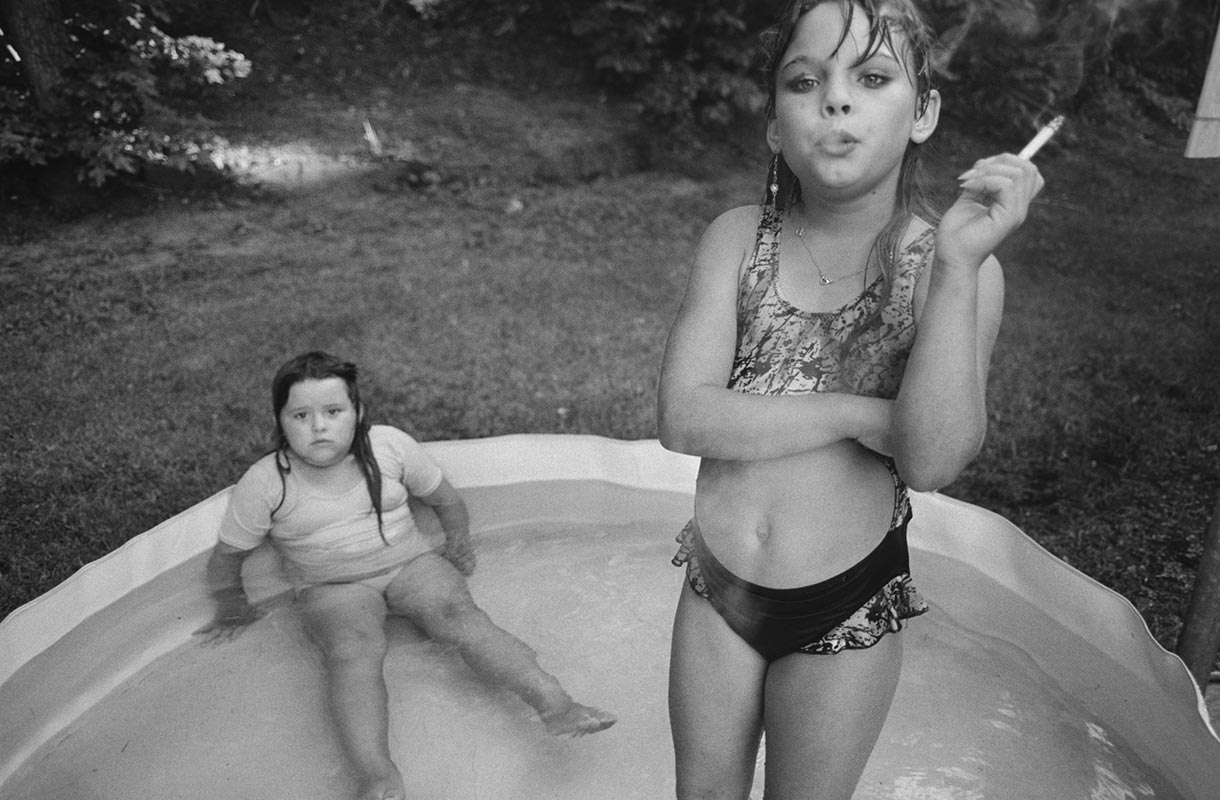
‘Kathy Ryan: Office Romance’
Howard Greenberg Gallery (until 18 June)
Howard Greenberg’s other exhibition is also worth a visit. A longtime director of photography at the New York Times, Kathy Ryan began taking photographs of daily life on her sixth-floor office in the early 2010s. What began as a hobby turned into a professional project, and her work was eventually published in book form by Aperture in 2014.
Ryan’s photographs convey a mixture of cool abstraction, the bleak monotony of workplace routine, and something like Kenneth Josephson’s urbane desire for transcendence. 12:06 p.m., June 12, 2014 is representative of her aesthetic. Framed harmoniously by metal façades, a woman dressed in black, her back to us, looks out into dense mist from the building’s roof. Replace the skyscrapers with mountains and you have an epic monochrome canvas of man confronting nature. But Ryan works in Manhattan where there are no mountains. The buildings will have to do.
12:06 p.m., June 12, 2014 © Kathy Ryan, courtesy Howard Greenberg Gallery
